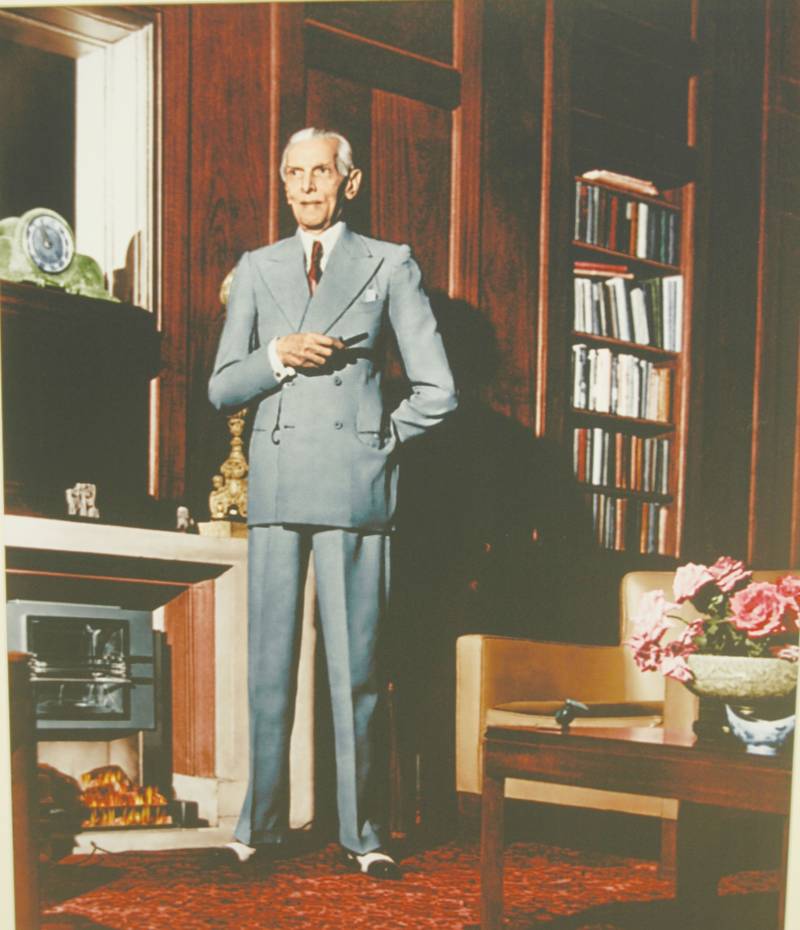Hajra Saeed
‘Millat Ka Pasbaan hai Muhammad Ali Jinnah
Millat hai Jism, Jaa’n hai Muhammad Ali Jinnah…’
These are the opening lines of the song that I remember hearing since childhood being played on the television & radio at the advent of September. However it’s not a widely known fact that this was actually a poem that was written by Mian Bashir Ahmad (who did a lot for the development of Urdu literature and journalism, especially by publishing an Urdu magazine ‘Humayun’ for over thirty years. This also led to his joining the All India Muslim League in 1937 and hence forth worked closely with the Quaid-e-Azam) which was read at the opening of the Lahore Session in March 1940. It was an eloquent tribute to the one true leader of ten crore Musalmaans of India.
However Muhammad Ali Jinnah was deeply admired by anyone who became acquainted with him. Whether it was during his life or afterwards; they all spoke very highly of him. Following are some outstanding tributes that were given after his demise:
An Editorial that was printed in ‘The Times (London)’ on 13th September 1948 reads: “Mr. Jinnah was something more than Quaid-i-Azam, supreme head of the State, to the people who followed him; he was more even than the architect of the Islamic nation he personally called into being. He commanded their imagination as well as their confidence. In the face of difficulties which might have overwhelmed him, it was given to him to fulfill the hope foreshadowed in the inspired vision of the great Iqbal by creating for the Muslims of India a homeland where the old glory of Islam could grow afresh into a modern state, worthy of its place in the community of nations. Few statesmen have shaped events to their policy more surely than Mr. Jinnah. He was a legend even in his lifetime.”
Harry S Truman (the then serving President of the USA) remarked: “He was the originator of the dream that became Pakistan, architect of the State and father of the world’s largest Muslim nation. Mr. Jinnah was the recipient of a devotion and loyalty seldom accord to any man”
While George Marshall (the United States Secretary of State) said: “Mohammad Ali Jinnah was a leader unique among men. Through the medium of his own faith and unswerving dedication to the cause to which he gave his life, he not only conceived and brought into being one of the great new nations of the world but stood at its helm during its initial difficult phases and brought it into cooperation with the rest of the world through the instrumentality of the United Nations. Respected by all who knew him, whether political friend or foe, for his deep personal integrity and honesty, Jinnah was also admired for his keen intellect and his personal charm. His education in India and abroad, his wide experience in the legal profession and in government and politics, his progressive and constructive contributions in all of these fields, won him a highly esteemed place among the elder statesmen not only of Asia but of the world.”
In 1949 it was stated in ‘The Economist’ (which is an English-language weekly newspaper): “In a recent poll the Germans voted Bismarck [1815-98] the greatest of all time. On any standards they were wrong for even in the same genre Quaid-i-Azam Mohammad Ali Jinnah stands higher. It took Bismarck the same seven years, from the Schleswig-Holstein war to the treaty of Frankfurt, to create the German Empire as it took Jinnah, from the Lahore Resolution of 1940 to Independence Day, to make Pakistan. But Bismarck started with all the advantages; a hundred-year old nationalism, the Prussian Army and Civil Service, the Ruhr, 15 years of experience of high office, and youth enough still to have 20 years as Chancellor before him in 1879. Jinnah began with nothing but his own ability and the disgruntlement of a religious minority in which he was only an unobservant member of the most heretic sect…”
Published in ‘The Statesman’, New Delhi: “None could fail to recognize Mr. Jinnah's greatness. Seeming as hard as a diamond, he had all the diamond’s brilliance”
Harry Hodson who was a British Economist and Editor, wrote the book ‘The Great Divide (1969)’ where he says “One thing is certain, it was not for any venal motive that he changed from an Ambassador of Hindu-Muslim unity into a Muslim Champion. Not even his political enemies ever accused Jinnah of corruption or self-seeking. He could be bought by no one, and for no price. Nor was he in the least degree a weather-cock, swinging in the wind of popularity or changing his politics to suit the changes of the times. He was a steadfast idealist as well as a man of scrupulous honor.”
Truly Quaid e Azam Muhammad Ali Jinnah was a great inspiration for everyone and in fact he still is…for all those who seek to be inspired! And though he may not be with us today, yet in spirit he will always remain!






